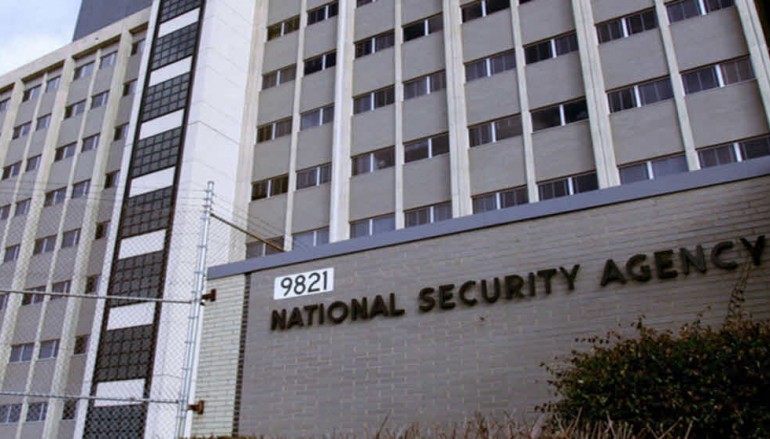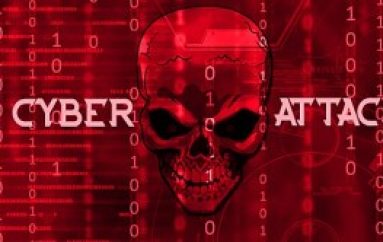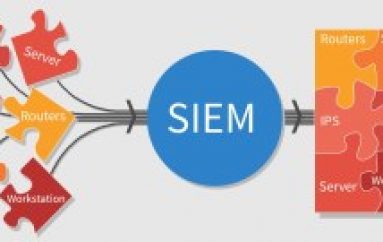Law enforcement agencies around the world are having trouble in their investigations as they cannot access data found in increasingly encrypted devices. Apple’s argument in refusing a court order demanding access is that creating a backdoor for just one phone could threaten the security and privacy of all its customers.
The topic of that ongoing battle, which has made its way to Capitol Hill, also set the stage for a debate hosted by New York University’s Robert F. Wagner Graduate School of Public Service and the Century Foundation, a nonprofit. A part of the “Debate of the Century” series, the organizations had CNN’s Fareed Zakaria duke it out with former NSA contractor Edward Snowden, who appeared via Google Hangouts.
The official argument was framed around the sentence: “government should have lawful access to any encrypted message or device.” Zakaria, who hosts CNN’s foreign affairs show, is in favor of lawful access and, naturally, NSA whistleblower Snowden is against it.
Are we a nation of laws?
Zakaria had one phrase he kept repeating throughout the debate: “I’m not a technologist.” But putting aside his lack of expertise in encryption technology, Zakaria began his opening statement with an analogy to the Apple vs. FBI encryption war.
“Imagine tomorrow that Bank of America announced that it had a new product — let’s call it an iVault,” Zakaria said. “And Bank of America said this is a virtual vault in which you can put all your bank information, any financial information you have, any other kind of information you want. … It could be your tax receipts, it could be your will, it could be receipts for travel, it could be whatever it is you want to keep secure and safe.”
“I understand that within a democracy, if you have rules of law, you have to sacrifice liberty for security at some point.”
He then asked the audience to imagine a figure, named Bernie Madoff, who embezzled billions of dollars from people’s pension funds. Madoff, in this hypothetical situation, is using an iVault. As the government searches to figure out the extent and scale of the crime, they are approved for a warrant, but Bank of America says, “No, this is encrypted digital information. In fact, our whole sales pitch to our customers is this is encrypted so you can’t have access to it.”
“How would you get around that problem?” Zakaria asked.
The gist of Zakaria’s solutions revolves around mandating laws for the government that strictly demarcate when it can and when it cannot get access to information, and what it can and cannot do with it. If the government does not clarify how it handles these information requests and instead tries to do whatever it wants, Zakaria says we could have a repeat of the Patriot Act when the next terrorist attack occurs.
He also quoted Microsoft founder Bill Gates, who came out against Apple’s stance against the FBI.
“‘Apple has access to this information; they’re just refusing to provide the access, and the courts will tell them whether to provide the access or not,’” Zakaria quoted Gates. “‘You shouldn’t call the access some special thing, it’s no different than asking the phone company to get information or bank records, there is no difference in this information. The government comes asking for a specific set of information, and the bank can say it has tied a ribbon around the disk drive, and says ‘don’t make me cut this ribbon, because if I cut it this one time, I’ll have to cut it many times.””
Apple can and has provided access to these devices in investigations, Zakaria says. No one, not the president nor the biggest tech company in the world, is free from withholding evidence that is “relevant to a court,” he added.
“I understand that within a democracy, if you have rules of law, you have to sacrifice liberty for security at some point,” he said. “This is not an absolutist position. I believe in strong protections for those liberties. I do not want the government abusing its authority; I believe it has. But you cannot have an absolute zone of privacy.”
Math is math
Snowden highlighted the consequences of weakening encryption — that leaving a key under doormat for the government would also make those homes accessible to anyone else.
“Lawful access to any device or communication cannot be provided to anybody without fatally compromising the security of everybody,” Snowden said. “That’s not my opinion either — that’s the formal conclusion from a gathering of the world’s top computer scientists and security experts at MIT to study precisely this issue.”
There is no current method to provide lawful access to the government for information, Snowden says, without risking such access becoming available to anyone else.
“Encryption is a field of mathematics: No matter how much we might hope otherwise, math is math,” he said. “It works the same way for Mother Teresa as it does for Osama bin Laden.”
“The NSA’s own classified documents — what they don’t say in public — say that we are in the golden age of surveillance,” Snowden said. “And they are right — computer security is a real threat. … Saying the government should have lawful access to any encrypted communication is identical to saying the government should mandate weak security for all of us.”
By the end of the debate, a live poll found that 70 percent of respondents in the audience believe the government should not have lawful access to encrypted messages and devices, with only 22 percent siding with Zakaria’s argument (8 percent remained undecided).
In closing, Snowden said the NSA and law enforcement is in a much better place than it ever has been for means of investigation.





